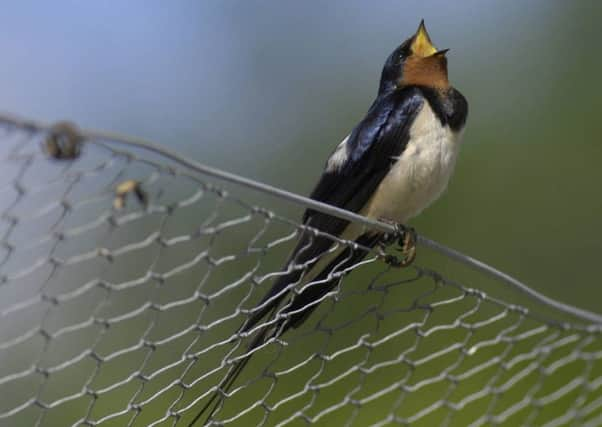Migrating birds stay in Scotland longer as climate gets warmer


Experts have discovered that certain migrating birds are arriving from foreign shores earlier in the year but are also leaving later than usual.
They say species such as swallows and house martins are spending increasingly long periods in Scottish breeding grounds before travelling back to Africa for winter.
Advertisement
Hide AdAdvertisement
Hide AdThe study, by scientists from the University of Aberdeen and the Fair Isle Bird Observatory Trust, also demonstrates that the arrival and departure process has also extended dramatically. Instead of abruptly setting off for Africa at the end of the summer here, some species are now taking several weeks to vanish completely.
However, analysis of the results has found the timing of spring and autumn migration is not closely linked.
In any given year migrant birds that arrive at their breeding grounds early in spring might be expected to depart early in autumn too, as soon as chicks have fledged the nest.
But results shows birds that arrived in Scotland early in spring did not consistently fly away early in autumn.
Some are staying longer each year – taking advantage of longer, warmer summers – and may rear extra broods.
Experts have been carrying out daily counts of migrant birds on Fair Isle, which lies between Shetland and Orkney, for more than 60 years. It is the UK’s most remote inhabited island and an internationally renowned hotspot for birds.
Dr Will Miles, of the University of Aberdeen and the Fair Isle Migration Project, said: “Environmental conditions are changing rapidly at a global scale. In response to these changes, the seasonal life-cycles of plants and animals are shifting too – often in dramatic and unexpected ways.
“It’s too early to know for sure exactly why bird migrations now last so much longer in spring and autumn, but it’s possible conditions in Europe and Africa have gradually become more favourable for long-distance migration and the birds are now under less pressure to migrate quickly within a short time window.”
Advertisement
Hide AdAdvertisement
Hide AdResults show swallows and house martins on Fair Isle are leaving up to a fortnight later than they did a few decades ago, while willow warblers used to arrive within a five-week period in spring but now take as much as 10 weeks.
Dr Mills added: “Some species appear to be staying in Europe for longer in the summer and may breed several times, and that is an advantage for the birds.”